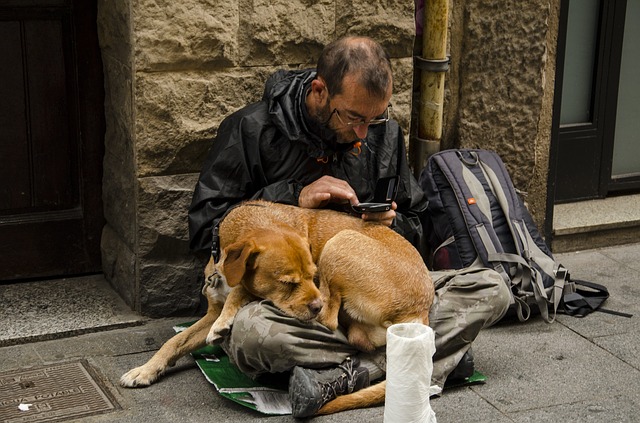A new dog hotel will provide homeless pet owners with resources to help care for their animals while they seek shelter.
Almost Home Dog Hotel will open its doors to its first dogs in March. The Phoenix City Council partnered with Hunkapi Farms and Midwestern University to put together the project.
Many homeless shelters do not allow homeless pet owners to bring in their pets. This forces people to choose whether to surrender their animals or sleep on the streets to stay with them.
This new hotel can be found on Hunkapi Farms located on 96th Street. and Cactus Road. The farm currently has empty horse stables with 14 stalls which will be renovated to house two to three dogs per stall.
Hunkapi Farms offers a number of programs including therapeutic horse riding, counseling, emotional regulation, addiction recovery and a program for first responders.
Those who bring their dogs to the hotel will be able to take advantage of the drug program located at the farm.
“For those with addiction issues, we feel they will stick to their rehab program since they will get to visit their dog daily while working in the program,” said Michael Peterson-Incorvaia, a communications specialist with the office of Councilwoman Laura Pastor.
Midwestern University will provide the farm with doctors and veterinary students to help with medical needs of the dogs. They operate a fully equipped mobile veterinary clinic that is funded by PetSmart Charities, which will visit regularly.
“I look at this as an opportunity to make a meaningful contribution to Hunkapi’s important mission,” said Dr. Thomas K. Graves, dean and professor at Midwestern University. “Dogs need medical care. This is an opportunity to help these animals live longer and healthier lives through disease surveillance and treatment and prevention of infectious disease.”
The attachment between owners and pets is strong, and there’s no exception between homeless people and their four-legged companions.
“The relationship with a dog might be the most positive and constant relationship in a homeless person’s life. Those dogs are truly valuable,” Dr. Graves said. “The problem of homelessness is so heartbreaking, and every time I see a dog with a homeless person on the street, I am struck by how closely that person and the dog are bonded.”
PHX C.A.R.E.S., a group with the City of Phoenix that provides services for homeless people, talked with Councilwoman Laura Pastor and said the biggest challenge it is encountering is that people do not want to surrender their pets.
“Keeping pets and people together is often the best outcome for the pets, the people, and the community,” a statement on the ASPCA website says. “Accomplishing this goal requires that we shift our thinking, especially when it comes to preconceived notions about a person’s financial circumstances and his/her desire and ability to take good care of a pet.”
There are approximately 5% to 10% of homeless people that own pets, according to a non-profit called Feeding Pets of the Homeless.
“This project will not solve our homeless problem, but it is a great thinking outside of the box solution to help at least a few families,” Peterson-Incorvaia said.
He said he hopes that this hotel will provide a role model for other cities in the future.
If you would like to volunteer visit www.hunkapi.org or call 480-393-0870 to get in touch with the farm. They are located at 12051 N. 96th St, Scottsdale, AZ 85260.




